
These Reports are once again starting to take a month between releases, and I have a JRPG on the side to finish that's probably going to take a while as it is. Good news is I bring six short reviews for you to peruse + that novel I finally got around to. I really need to stop trying out walking simulators seeing as they obviously aren't my jam.
Vampire - Shadows of New York ( PC (Steam) – Visual Novel – 2020 ) + TRAILER
Coming back for seconds after not being impressed by Coteries of New York does sound like me, but in this case I was pleasantly surprised by Shadows of New York. I think playing more to its strengths as a Visual Novel was what ended up working in game's favor. Top shelf production for the genre notwithstanding, of course.
Following her stint as a very mortal journalist we see Julia Sowinski get embraced into a newly-minted Camarilla clan Lasombra. Provided you have any familiarity with Vampire: the Masquerade this is already a hook beyond belief seeing as clan switched allegiances and narratively you're a solitary Turncoat in New York. What follows is Julia getting assigned a task to resolve a murder mystery of a disliked elder and seemingly set up for failure by the Prince. I wouldn't say playing the previous game is mandatory, but you'll strongly benefit if you have seeing as almost all characters make a return and current crisis is set after Coteries. If anything it's once again a showpiece of Camarilla politics and World of Darkness itself.
So what actually sets Shadows of New York above the last game for me? How it really isn't trying to deliver crunch-based mechanics only to half-ass them in the attempt. Protagonist is fixed and has a fleshed out personality of her own. Not that I'm a fan of this whole “alternative, whiny millennial” mindset, but it grounds a character who has a lot to say about the contemporary world. Strawberry jam aka Hunger mechanic is a non-issue here which in turns leads to more liberal use of Disciplines and not worrying about feeding crippling your options. I was surprised by how decisions you make throughout the game actually build up to one of the two endings, though. This time around endings truly ARE meaningfully different.
Some surprising callbacks to Redemption of all games perhaps endeared Shadows of New York to me more than it deserves, but in a sense it embodies the new roleplaying edition rather well – an intimate journey with your own shadows.
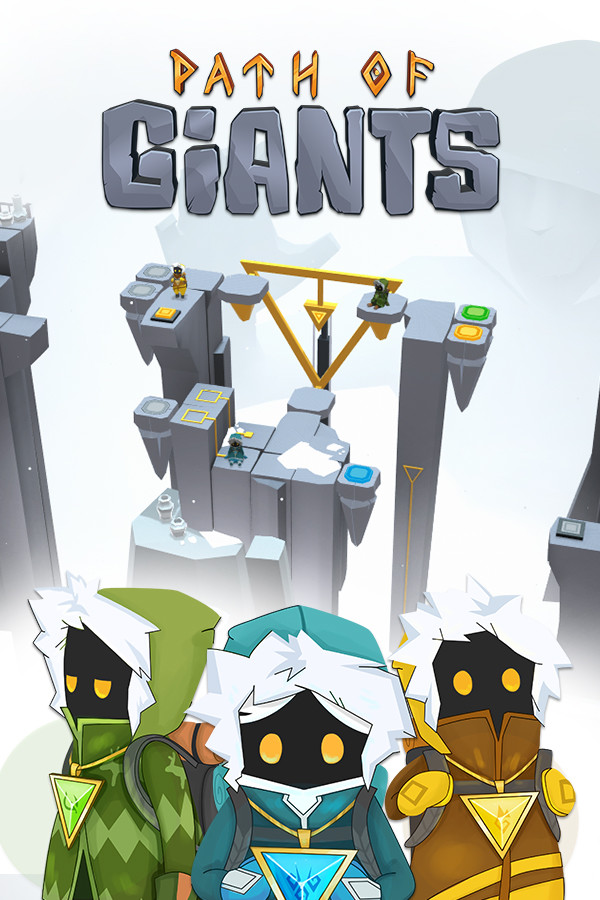
Path of Giants ( PC (Steam) – Puzzle – 2020 ) + TRAILER
One can't help but wonder if this is perhaps one of those cases where being a puzzle game novice of sorts helps in place of someone more experience who could see faults with ease. Be as it may, I had my fun with Path of Giants and what it had in store atop its wintry peaks.
Lightweight semblance of a story is quickly conveyed to the player via party banter – three intrepid adventurers find themselves climbing up and delving through while striving to reach the top of a mountain where a certain treasure is kept. That's it and game never really expands which ended up rather refreshing. Hell, even the ending is pretty much just Bern, Matchi and Totch walking away following a very natural conclusion to this narrative. No curve balls in sight.
Which really translates to Path of Giants living or dying based on gameplay. Well, some pretty chill and calming atmosphere does its fair share of lifting, but PUZZLES are the reason you'll hopefully end up stay playing for. Twelve regular areas, normally with three levels contained within, of getting your three fur-backed dudes to tiles matching their own color pattern. Deceptively simple when you take into account structure is tile-based and reflexes don't count for much, but one element to keep in mind is entire affair is cooperative. Our adventurers need to give each other a leg up or help going down from elevated blocks so foresight is mandatory. Later on the game will introduce novelties such as weight-based elevators to balance, additional buttons you stand on to activate the likes of extendable platforms, etc. Good news is that a simple undo function is readily available and despite employing full 3D graphics game never makes use of terrain obfuscation for obtuse results. If anything, and being inexperienced in puzzle games as I professed previously, I found myself having minimal trouble through the entire game. At parts it was the Pipe Mania-style mini-game which annoyed me more than following otherwise perfectly logical orders of priorities and color sequences.
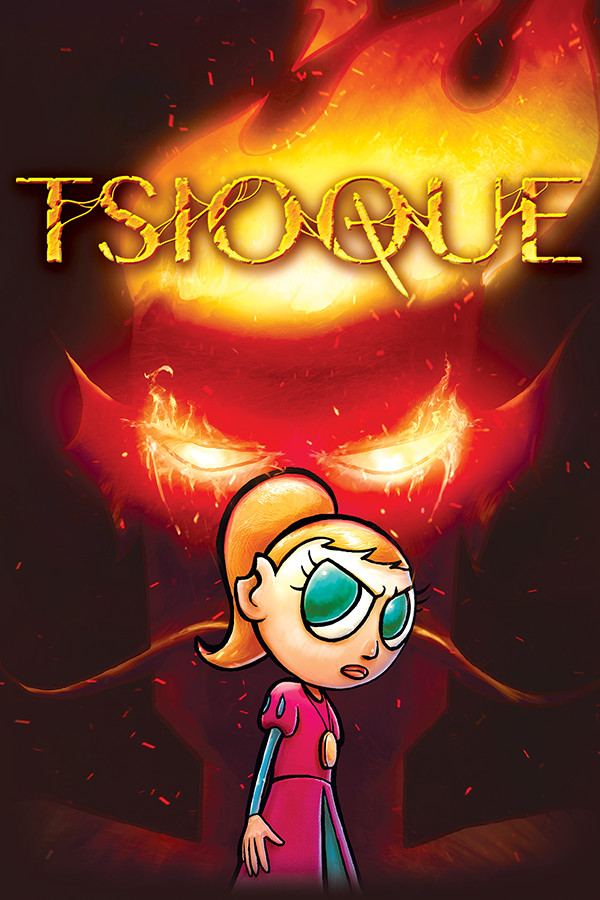
TSIOQUE ( PC (Steam) – Point & Click, Adventure – 2018 ) + TRAILER
Hand-painted 2D animation is seemingly all but impossible to come by these days and yet it is precisely that visual flair which developers used to make TSIOQUE stand apart. Not to say that's all there is on offer with this one, though.
We're rooted firmly in fantasy land for this one, lads. Good Queen, who also happens to be of the warrior queen sort, sets out to protect her land as dire crisis arises leaving her young daughter back at the castle. It is precisely at this time that Dark Wizard strikes and corrupts the land as his evil-toothed minions take over. They also lock princess Tsioque and throw away the key as wizard just wants some peace and quiet to finish his great endeavor. Needless to say, our girl won't take it and after using a sewer monster to free herself she's out to cause a ruckus. Despite how goofy evil minions come off with their exaggerated gibber-talk I like how they're still very sinister and real threat from princess' own POV. She herself is rather no-nonsense and not above violence, but being a kid still comes across in her interactions. Befriending animals was neat.
I guess it's a good thing puzzles in this adventure game are rather solid. Entire thing starts off very straightforward, albeit to game's credit it never resorts to highlighting hotspots/having an in-built guide so it relies on players' intelligence to work it out, but once you reach mindpoint or so you'll be dealing with your usual “collect seemingly unrelated items, prepare to use them during end game”. Only rarely did I find myself stumped and that was due to transitioning from a linear sequence of events to structure opening up with more freedom to go around. This IS still a fantasy adventure game and while being no Discworld in terms of obtuseness if you have very low tolerance you might want to steel yourself.
Spoilers are obviously no-go for me, but I have to point out the entire degradation thing didn't click for me. I think developers making a message about what an unsafe prospect game development is interfered with TSIOQUE's own story.
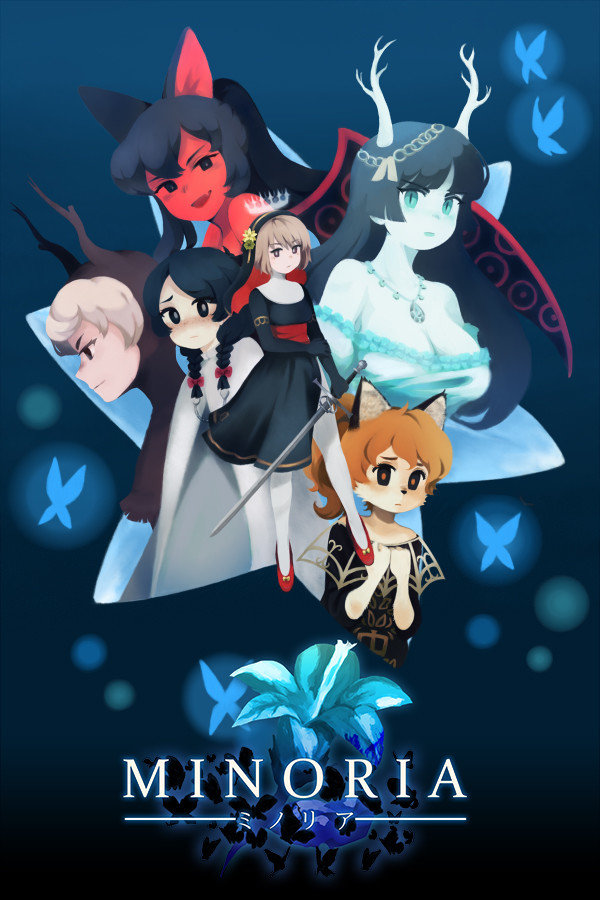
Minoria ( PC (Steam) – Metroidvania – 2019 ) + TRAILER
I found myself enjoying Minoria. Not that it breaks any new grounds or has major problems as such. Rather, how certain choices in the presentation/narrative departments took me by surprise. Let's see how this light metroidvania does things.
The gist of things is you're controlling Sister Semilla as she's sent to kingdom of Ramezia where witches are running rampant. Needless to say, there's heresy and you're sent to cleanse the land as well as save the two missing princesses. Keep in mind this IS a lightweight story with your acting support Fran having doubts whether what Sacred Office is doing is justified. Tone was what really astounded me, though. Despite cutesy looking characters setting-building and story are both very seriously presented with fanatics on both sides believing they're in the right and justified.
Metroidvania? In this case it's a matter of interconnected areas parts of which are initially locked off until you find requisite abilities to progress. Minoria is surprisingly sparse on navigation as a whole and offers little more than few keys to find before you get to advance. Some rooms hidden behind fake walls notwithstanding, but with a trusty map it's a non-issue. What it does have greater focus on is the combat... and not for the better, sadly. Keeping in mind you get access to couple of swords and crapload of Incenses which are game's magic used for ranged damage dealing and limited healing, actual problem is how reliant on counters the entire thing is once button mashing gets old. With a generous response window it kinda trivializes the entire affair down to few bosses. You could beat the game with nothing more than initial outfit.
At the end of the day I'd say Minoria works largely because it knows when to end things. Decent entry if you're interested in getting to know the genre more, though. Responsive controls and good overall pacing go a long way in sustaining interest, although replaying it for the heretical ending never crossed my mind. Once was enough.
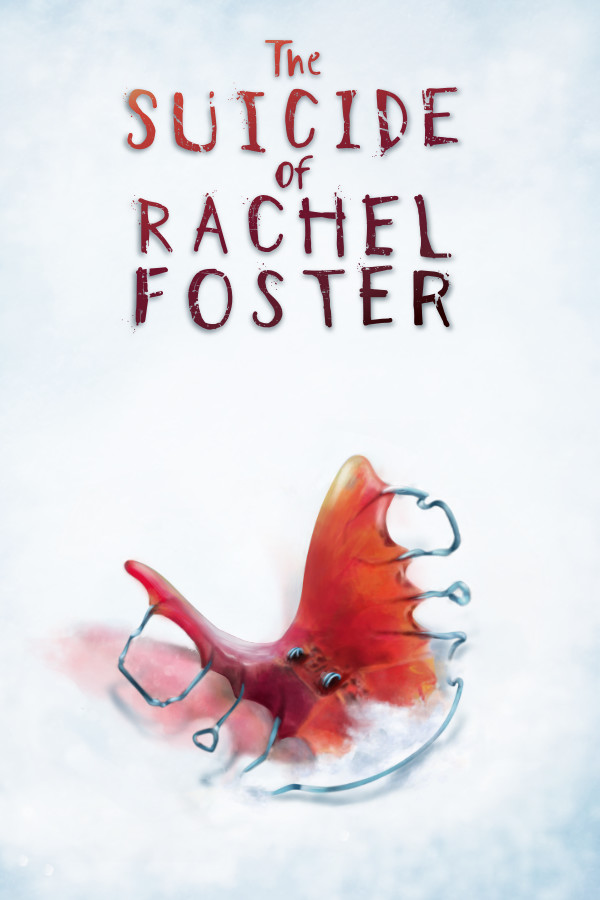
The Suicide of Rachel Foster ( PC (Steam) – Walking Simulator – 2020 ) + TRAILER
If there's a silver lining in this story it's the fact that The Suicide of Rachel Foster being a walking simulator means you more or less know EXACTLY what you're getting when you sign up. It also means part of it grew on with me while I barely tolerated the other. I just wish these games embraced more interactivity beyond “rotate carefully detailed objects”.
Story is the main draw here so I'll keep it minimal. Being the last of kin our protagonist returns to her family's hotel, one that has seen better days, amidst the storm of a century as she has to decide the fate of the place. Nicole is definitely hell bent on selling as quickly as possible before getting out of there due to painful memories, but circumstances conspire with the aforementioned snowstorm as she ends up stranded. Luckily, a FEMA agent gets in radio contact and so begins her survival while Nicole unravels more of her forgotten past tying into the very title. Much to my own shock, game managed to pull a complete 180 with the protagonist seeing she started out as absolutely intolerable and I considered dropping the game if that was what awaited me. Which is good news because Nicole and Irving are effectively the only two characters meaning their interactions propel the story. Story-wise you can tell there's more here than meets the eye so I don't think I'm exactly foreshadowing any radical revelations here. Coincidences abound for you to not pick up on them REAL fast and, albeit cliche, I enjoyed the ride as it unraveled. Part of me wishes devs didn't go so heavy handed with story beats, though.
Doubly so when you consider they opted for terrifically atmospheric hotel as locations of choice with plenty of subtle storytelling. By the end I could navigate the place with my eyes closed and games expects you to be able to because there are no quest markers leaving a fixed map as your go-to solution. In terms of controls and, well, playing the game, we're talking slow walks over a believably realized hotel and yet it defaults to walking. There are also customary bits of “too much exposition for a small area” which stops you dead in the tracks before you're allowed to interact again.

Gris ( PC (Steam) – Platformer – 2018 ) + TRAILER
Boiling it down to barest essentials GRIS is just a pretty 2D platformer that doesn't falter in any individual segment. Yet, I'd say presentation overall is that edge game employs to lift it above myriad of other platformers vying for attention.
Absence of in-depth story is obviously by design in this case. There is a narrative of our protagonist losing her voice and seemingly going through an inner journey to recover it, but this is left unsaid and is for you intuit on your own. Almost a poster child for not needing to hammer the point home and having some faith in your players' intelligence. Not to say this approach to storytelling can't have appropriately dramatic highs of tension or swell of emotions because nothing could be further from the truth. Especially all the buildup to a well-earned ending.
Playing has you going through multiple worlds unlocking “colors” and restoring life. With each completion you also get new powers and these reflect game's short length as there are mere handful. From turning your cloak to stone for weighty destruction, diving and gliding, all are introduced organically and given space to shine before mixing it up. Seeing as there is no combat your primary form of engagement is collecting, well, starlight game uses to unlock forecoming areas. Part of me wishes there were more “boss encounters” comparable to what the game throws at you because those were moments of action an atmospheric platformer like this needs from time to time. Challenge is not the main draw here, though.
I have to talk visuals/audio, both of which are stunning. You don't need a graphics budget comparable to small country's income in order to make a lasting impression. Vibrant and dynamic use of coloring as well as clear shapes avoiding clutter really sold GRIS to me. Standout animation certainly didn't harm it, either. Audio is very much in the same category. Appropriately enough as story reaches climax sound becomes more prominent with humming taking central stage.

Greybeard ( Science Fiction, Post-Apocalypse – 1964 – 237 pages ) + GOOD READS
As opposed to more immediate world-ending apocalyptic events I found Greybeard's take on the matter refreshingly laid back. Essentially, current generation of people is set out to be the last one as there are no more children being born. In practical terms this means our protagonist Algernon Timberlane is one of the last few young people by the time story starts in 2030s. And by "young" I mean he is in his fifties and has only childhood memories of what the world was like before "the Accident" in the '80s which altered the world making not only humans incapable of successful procreation, but also many mammals in generals with few exceptions. While the novel explains what happened through flashbacks and recollections, which are spoilers so I won't go into them, I can safely say the causes that lead to this slowly dying world don't really matter because the story isn't about them or trying to fix the impossible. World is what it is leaving Algy and his wife Martha to find their way as years inexorably go on.
Structure we're working here is alternating chapters - present day followed by flashback at various points in time. I particularly liked the one set after things really started falling apart in England so military steps in to assume control. Makes you realize this entire story could've taken a drastically different direction then and there. Amusing bit for me was how a pivotal chapter explaining Algy's reasoning as to why he initially joins DOUCH(E), organization meant to safeguard humanity's future... in a way, fell completely flat. Additional points as the man himself confirms that very thing towards the end of the book. But lest I type things randomly those are the parts meant to flesh out the world-that-was. If you ask me the body of work are present-day chapters dealing with how our little group survives. You never get the impression it's some epic adventure or anything, but rather senior citizens who still have to contend with circumstances beyond their control and other people being idiots as effective post-apocalypse brings the worst out of them. You're on the run with nowhere to go? Come across a secluded makeshift village and stay there for almost fifteen years, why not. Rich descriptions of this new existence go a long way to successfully selling it, though. By god, I believed they were sailing down Thames for most of the book and bustling wildlife coming to reclaim its rightful place as few holdouts of decrepit humanity start becoming more out there with age.
We come to my problem with Brian Aldiss that I keep complaining about despite reading his books anyway. He cannot write characters conversing with one another without coming off as incredibly stilted or expository. I think Greybeard suffers from it in particular because all those scenes between Martha and Algy when they talk about what childhood memories spurred the latter to become the man he is now or what the former feels she's missing as there are no children in the world all sound very dry as presented. Then again that particular type of rapport is Aldiss' preferred. Even with other characters like their religious friend Charles or certain cult leader they come across, for example. Everyone is uttering dialog relevant to their personality, but final result is lack of character itself.
Impression I could not shake while reading Greybeard was one of meandering series of pit-stops along the road to nowhere as there's no clear-cut objective. Novel also pulls the rug from under you in the last fifteen pages or so by revealing the great mystery that has been continually skirted along. You can probably guess what it is, but the abrupt manner in which it's handled just did not sit well with me.
I’m a bit intrigued by Shadows of New York. Because you said it was a visual novel, I’d expect not much in term of gameplay. But then you’re talking about disciplines. Is this like in the Vampire paper RPG where you are more or less strong in certain disciplines and they’re linked to your clan (so Oblivion, Dominate, Potence if you’re a lasombra I guess) ?
There’s no character sheet to display what Disciplines you have or how proficient you are at them, if that’s what you were asking about. Boils down to choosing the option tagged with the [Discipline] when it’s available as alternative route to take. For example, Dominate was the most prevalent one as a way to scramble someone’s mind if you didn’t want to try convincing them conventionally. I was honestly surprised how rarely Oblivion got used… and I’m still not over the name change. Obtenebration, man!
Oh I see.
I didn’t even knew they had a name change before looking it up. Haven’t played in like 20 years :D.
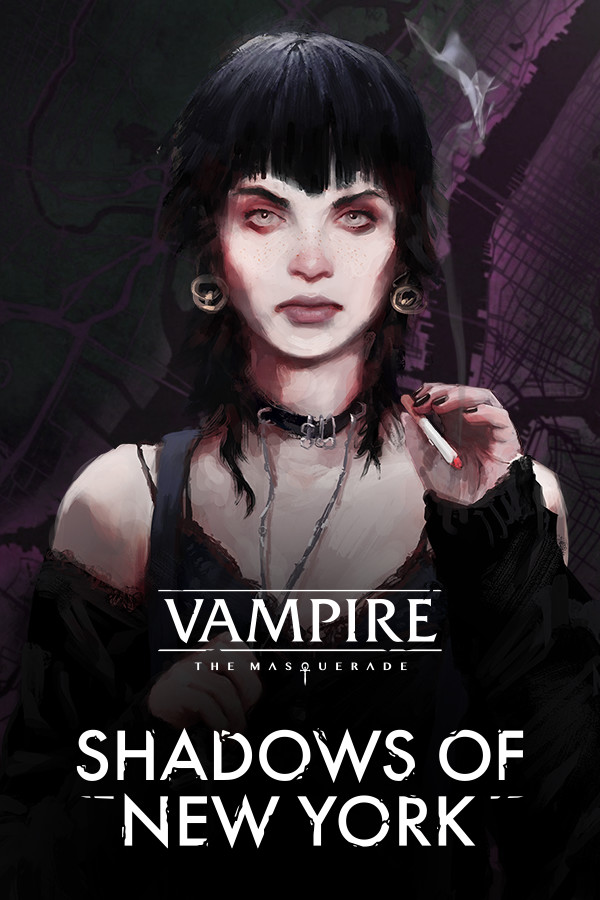
While Path of Giants looks promising, that part gives me concerns. In my experience, novelties in puzzle games only serve two purposes: pad out a dull game with short-lived gimmicks, or make the entire puzzle just be figuring out what the gimmick does or how to activate it (like an adventure game). Would you say the game has those adventure-game-style puzzles? If not, how often do the novelties show up after being introduced? How is the game’s difficulty curve?
This implies that, in the past, you’ve enjoyed certain games specifically because they have major problems. I’d like to know more about that.
As someone who played GRIS up to when you get the red (singing) power, I’d argue the game boiled away some of the barest essentials as well. It’s really more of a walking simulator/adventure game with a jump button.
Nothing against you personally, but I’m tired of different genres aping the style of 2D platformers so people who don’t know any better go “oh, it’s a 2D platformer” when really it’s a totally different genre and is seemingly just trying to bank on nostalgia/misinformed buyers to generate sales that otherwise wouldn’t have existed.
It’s definitely puzzles all the way through and they are on the straightforward side of getting characters across to correct tiles rather than combining objects in adventure game logic or something. Novelties is perhaps a strong weird that seems to have negative connotations here. What I mean by it is “more elements to solving problem”. They’re usually introduced with major area advancements and simple examples are used for that effect. As far as difficulty goes I didn’t really experience any outside of the penultimate area. I did not 100% the game with secret levels, though.
I’d say it’s more along the lines of having tolerance for so-called jank in games if I enjoy other parts, albeit this is more reserved for RPGs in general. Minoria itself simply doesn’t have any standouts that immediately popped for me. If there was an annoyance it would be how regular combat is trivialized due to reliance on counter attacks.
You’re actually totally right and I even considered raising the walking simulator point, but I’m on the other side here - if games are hellbent on being walking simulators I’d rather they look up to GRIS which is fundamentally a 2D platformer rather than something like The Suicide of Rachel Foster where employing the first-person perspective while being a walking simulator means you’re just holding forward and waiting for the ride to end. I just want to have something to actually PLAY or devs might as well make an indie movie.